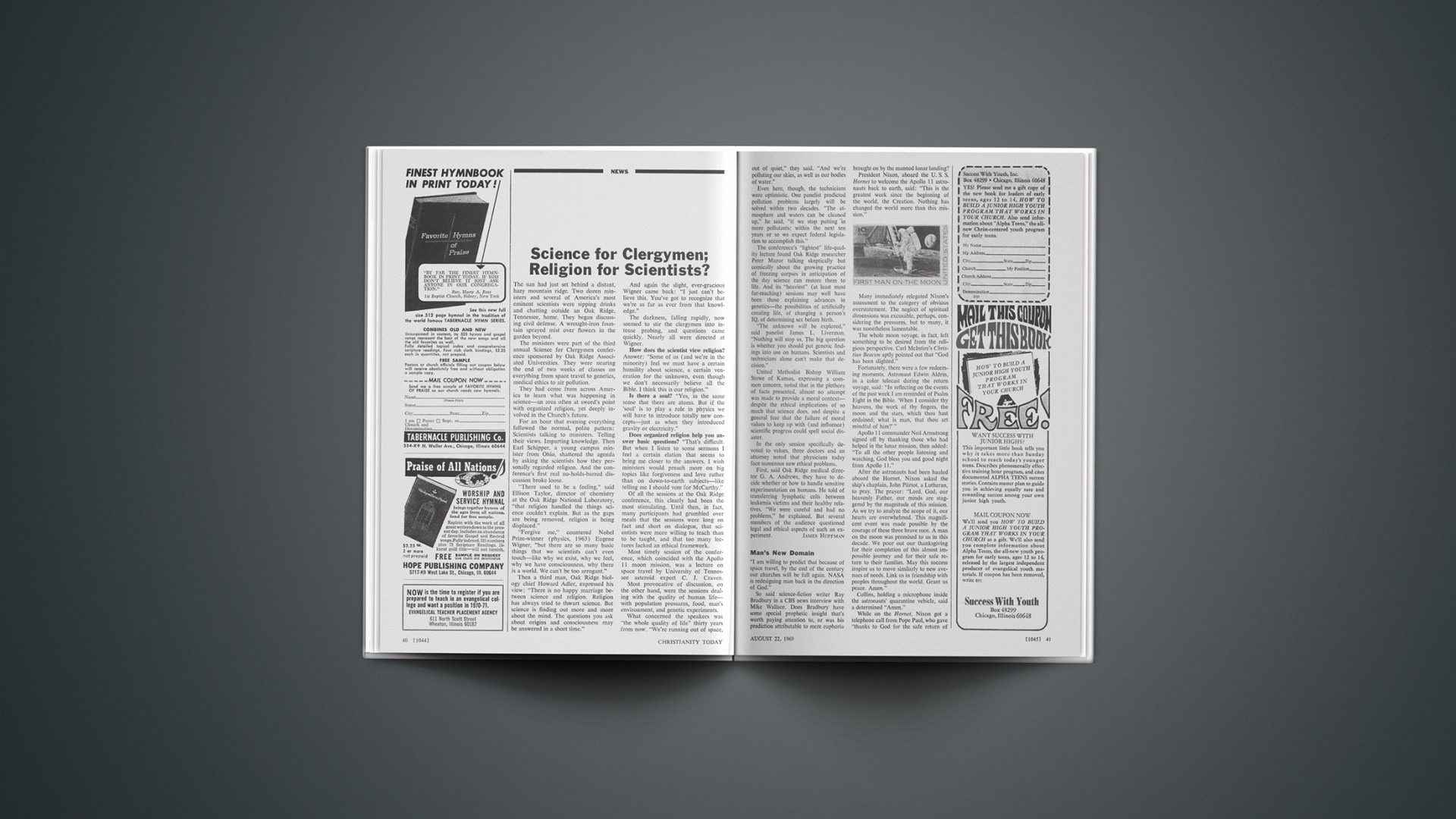Ten years ago, when the fledgling Fellowship of Christian Athletes was just getting a grip on the imagination of the nation’s sports greats, the luminaries in the movement were Al Dark, Adrian Burk, Vern Law, Pepper Martin, and George Kell. And Branch Rickey, an FCA angel and founding father.
This summer, Bobby Mitchell, Bill Glass, Bobby Richardson, Paul Anderson, Cazzie Russell, Tom Landry, Jerry Stovall, and Paul Dietzel are a few of the prestigious athletes on the roster of those involved in the FCA’s record number of conferences.
The first issue of the Christian Athlete a decade ago reported that a thousand persons had taken part in a Dallas rally. This spring, the magazine said 240,000 were directly reached during an FCA Weekend of Champions in the same city.
FCA’s rapid growth—especially in the past four or five years—is impressive: Sixteen week-long conferences this summer—up from last year’s nine; 1,500 official huddle and fellowship groups meeting regularly around the nation; and FCA support groups in 175 cities. Ever since the first national conference in Estes Park, Colorado, drew 256 athletes and coaches in 1956, the FCA has been trading on the belief that young, aspiring athletes will respond to the example and words of intelligent, strong men with a big faith who speak softly of their love for Jesus Christ.
Conference leadership includes both Protestants and Catholics. To attend, a boy must be certified by his coach and by his pastor or priest. “We have the most fundamental and the most liberal,” explained FCA associate director Gary Warner. No invitations to accept Christ are given at conferences, but “we try to center on the person of Jesus Christ as Saviour and Lord.” Most decisions are made in one-to-one counseling situations, but Warner says there is no pressure. The FCA attempts to “complement or supplement” the local church rather than to compete with it.
Last month, the FCA called some new signals: About 150 of the nation’s pro, college, and high-school mentors gathered for the first annual coaches’ clinic at Estes Park to discuss motivation, morale, problem athletes, discipline, and mental attitude. Many told amiable FCA executive director James Jeffrey it was the best clinic they’d attended. The innovation also had a subtle hook. It was geared to reach coaches new to the FCA (notably, only about thirty of those attending had even been on FCA mailing lists before), and, hopefully, to enlist leaders to work with FCA’s growing coterie of kids at the local level.
On the drawing board: A new headquarters for the twenty full-time FCA staffers now crammed into a Kansas City, Missouri, bank-building office (the FCA has a site in Marshall, Indiana); plans to reach junior-high-age boys; and a shattering of the sex barrier—groups for girl athletes.
The board of directors * would like more blacks on the FCA team. The first Negro staffer, former Baylor University halfback John Westbrook, said to be the first black footballer in the Southwest Conference, recently was hired with this in mind.
Part of FCA’s success is that it scores with lesser-knowns as well as with Wheaties endorsers. For example, Lloyd Engel of Escalon, a veteran coach at a small high school in California’s central valley, keeps returning to conferences year after year—bringing new boys each time. “The FCA has been a tremendous boost to my Christian faith,” he says. And he obviously enjoys the easy fellowship with famous men he otherwise would never meet.
Coach Travis Raven told a skull session at Estes Park about his Austin, Texas, high school’s pass offense, then described to colleagues how association with the FCA had changed his life and made witnessing easier: “I used to be embarrassed to say that Christ is my Saviour and that I read the Bible. Now I’m not.”
RUSSELL CHANDLER










